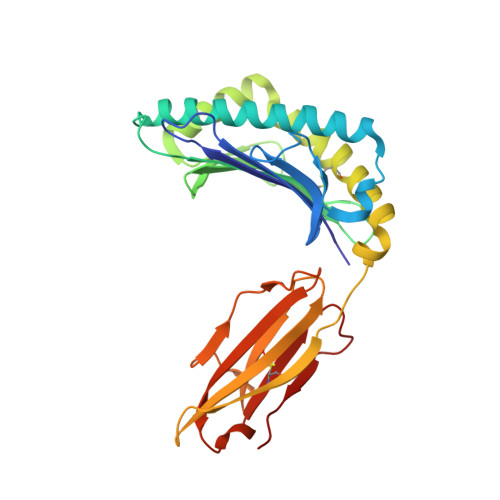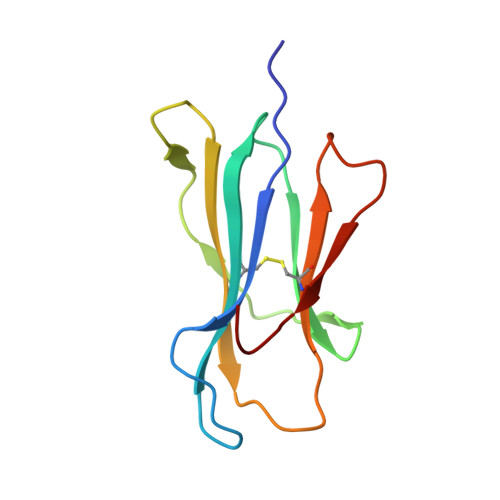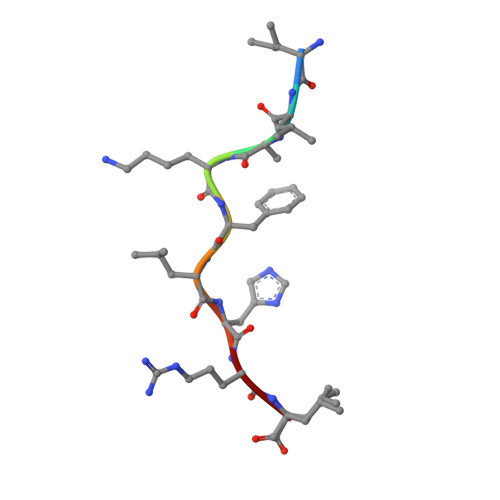Peptide length determines the outcome of TCR/peptide-MHCI engagement.
Ekeruche-Makinde, J., Miles, J.J., van den Berg, H.A., Skowera, A., Cole, D.K., Dolton, G., Schauenburg, A.J., Tan, M.P., Pentier, J.M., Llewellyn-Lacey, S., Miles, K.M., Bulek, A.M., Clement, M., Williams, T., Trimby, A., Bailey, M., Rizkallah, P.J., Rossjohn, J., Peakman, M., Price, D.A., Burrows, S.R., Sewell, A.K., Wooldridge, L.(2013) Blood 121: 1112-1123
- PubMed: 23255554
- DOI: https://doi.org/10.1182/blood-2012-06-437202
- Primary Citation of Related Structures:
4I4W - PubMed Abstract:
¦Á¦Â-TCRs expressed at the CD8(+) T-cell surface interact with short peptide fragments (p) bound to MHC class I molecules (pMHCI). The TCR/pMHCI interaction is pivotal in all aspects of CD8(+) T-cell immunity. However, the rules that govern the outcome of TCR/pMHCI engagement are not entirely understood, and this is a major barrier to understanding the requirements for both effective immunity and vaccination. In the present study, we discovered an unexpected feature of the TCR/pMHCI interaction by showing that any given TCR exhibits an explicit preference for a single MHCI-peptide length. Agonists of nonpreferred length were extremely rare, suboptimal, and often entirely distinct in sequence. Structural analysis indicated that alterations in peptide length have a major impact on antigenic complexity, to which individual TCRs are unable to adapt. This novel finding demonstrates that the outcome of TCR/pMHCI engagement is determined by peptide length in addition to the sequence identity of the MHCI-bound peptide. Accordingly, the effective recognition of pMHCI Ag, which is a prerequisite for successful CD8(+) T-cell immunity and protective vaccination, can only be achieved by length-matched Ag-specific CD8(+) T-cell clonotypes.
Organizational Affiliation:
Institute of Infection and Immunity, Cardiff University School of Medicine, Cardiff, United Kingdom.



















